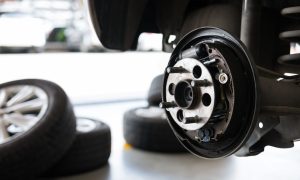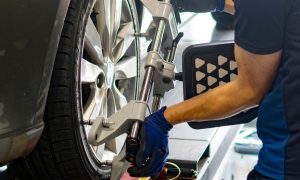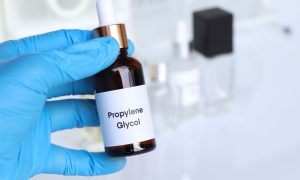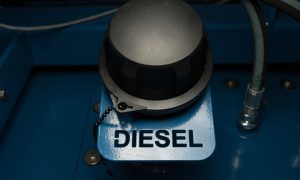Which coolant is best for your diesel engine? You’re not alone. I’ve spent years working with diesel engines, and choosing the right coolant is one of those decisions that can save you thousands of repair costs.
Diesel engines work hard and need the right coolant to keep everything running smoothly. In this guide, I’ll break down the different types of coolants, what makes them special, and which might be the perfect match for your diesel engine.
What are the Different Types of Diesel Engine Coolant
Not all coolants are created equal, especially in diesel engines. Let’s explore the main types you’ll encounter when shopping for diesel engine coolant.
Propylene Glycol
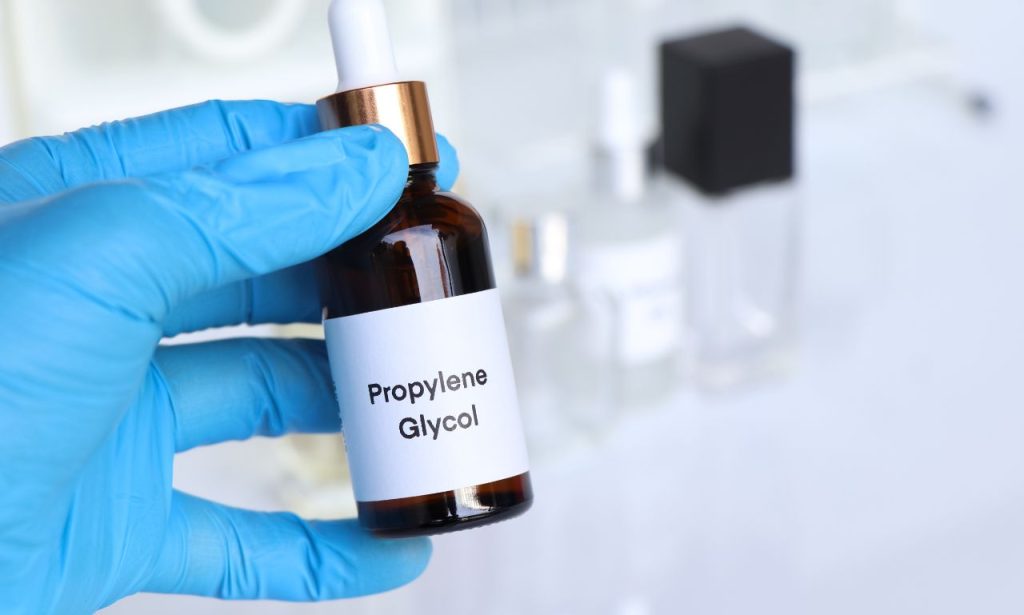
Propylene glycol coolants are known for being less toxic than other options. This makes them safer if you have pets or children around your garage or workshop.
These coolants offer good heat transfer properties and decent protection against corrosion. They typically have a lower freezing point than water alone, though not as low as ethylene glycol.
One thing I’ve noticed about propylene glycol coolants is that they are more expensive than ethylene glycol coolants. However, many consider the reduced toxicity worth the extra cost, especially in household settings where safety is a priority.
Ethylene Glycol
Ethylene glycol is the most common base for diesel engine coolants. It provides excellent freeze protection and heat transfer capabilities, making it ideal for extreme temperatures.
These coolants typically contain additives that protect against corrosion, scale buildup, and foam formation. The downside? Ethylene glycol is highly toxic if ingested, so proper handling and disposal are essential.
I remember working on a fleet of trucks in northern Canada where temperatures regularly dropped below -30°F. The ethylene glycol coolants performed flawlessly, keeping engines protected even in those harsh conditions. For most heavy-duty diesel applications, ethylene glycol-based coolants are the industry standard for a good reason.
Organic Acid Coolant (OAT)
Organic Acid Technology (OAT) coolants use organic acids instead of traditional inorganic additives to prevent corrosion. They’re designed to last longer than conventional coolants, with service intervals often extending to 150,000 miles or more.
OAT coolants are particularly good at protecting aluminum components, which are increasingly common in modern diesel engines. They’re also less likely to form deposits in coolant passages, ensuring better heat transfer over the long term.
One drawback of OAT coolants is that they don’t always provide the best protection for older engines with brass or copper components. They’re designed with newer engine materials in mind.
Long Life Coolant / ELC
Extended Life Coolants (ELCs) are premium products that provide longer service intervals and better overall protection. Many ELCs use a combination of organic and inorganic additives, creating what’s known as hybrid organic acid technology (HOAT).
Shell Rotella Ultra ELC is a popular choice in this category. It offers up to 600,000 miles of protection for heavy-duty diesel applications. These coolants generally require less maintenance and fewer additives over their lifespan.
The primary advantage of ELCs is reduced maintenance costs. While they cost more upfront, you’ll change them less frequently and typically won’t need supplemental coolant additives (SCAs) that traditional coolants require.
Inorganic Additive Technology (IAT)
IAT coolants are the traditional “green coolant” that’s been around for decades. These coolants use inorganic additives like silicates, phosphates, and nitrites to protect engine metals from corrosion.
While effective at preventing corrosion, IAT coolants deplete relatively quickly, requiring more frequent changes or the addition of supplemental coolant additives. They typically need changing every 30,000 miles or two years.
These coolants work well in older diesel engines with more traditional metallurgy. IAT coolants might be a good match if you’re running an older diesel engine with lots of copper, brass, or steel components.
What is the Importance of Diesel Engine Coolant?
Coolant is much more than just “antifreeze.” It performs several critical functions that keep your diesel engine running reliably for the long haul.
Engine Component Protection
Modern diesel engines contain various metals, including aluminum, cast iron, steel, and sometimes copper and brass. Without proper coolant, these metals can corrode or react with each other, leading to severe engine damage.
The corrosion inhibitors in quality diesel coolants create a protective layer on metal surfaces, preventing rust and corrosion. Different coolant formulations protect different metals, so using the right type for your specific engine is crucial.
I once helped a friend troubleshoot an overheating issue on his diesel pickup. When we drained the coolant, we found it full of rust particles. He’d been using the wrong coolant, and the resulting corrosion had clogged his radiator. A simple coolant choice ended up costing him a new radiator and water pump—an expensive lesson!
Cavitation Prevention
Diesel engines, especially those with wet-sleeve cylinder liners, are susceptible to cavitation. This occurs when air bubbles form and collapse against the cylinder walls, causing pitting and eventually perforating the liner.
Quality diesel coolants contain additives specifically designed to prevent cavitation damage. Nitrites and molybdates are common additives that form a protective layer on cylinder liners, absorbing the energy from collapsing air bubbles.
Without these protective additives, cavitation can drastically shorten an engine’s life. I’ve seen cylinder liners with holes eaten right through them due to cavitation – a catastrophic failure that could have been prevented with the proper coolant.
Proper Operation
Beyond corrosion and cavitation protection, coolant ensures your diesel engine maintains the optimal operating temperature. This is crucial for performance, fuel efficiency, and emissions control.
Coolant transfers heat from the engine to the radiator, where it can be dissipated into the atmosphere. Suitable coolants maintain heat transfer properties over time, even at high temperatures.
Additionally, quality coolants prevent scaling and deposits in the cooling system. These buildups can restrict coolant flow and reduce heat transfer efficiency, leading to overheating and potential engine damage.
Can I Put Regular Coolant in a Diesel Truck?
I always get this question, and the answer is: it depends on what you mean by “regular coolant.”
The answer is generally no if you’re referring to coolant designed for passenger cars. Diesel engines, especially heavy-duty ones, have specific requirements that passenger car coolants don’t address.
Diesel engines need coolants with nitrites or other additives to prevent cylinder liner cavitation. Passenger car coolants typically don’t contain these additives, making them unsuitable for diesel applications.
However, suppose your diesel is a light-duty passenger vehicle (like many modern diesel SUVs or pickups). In that case, it might use a different cooling system design less susceptible to cavitation. In these cases, the manufacturer might specify a coolant that is more similar to those used in gasoline engines.
The golden rule is always to follow your manufacturer’s recommendations. The coolant specification in your owner’s manual isn’t just a suggestion—it’s based on your engine’s specific metals and design.
How to Choose the Best Coolant for Your Diesel Engine
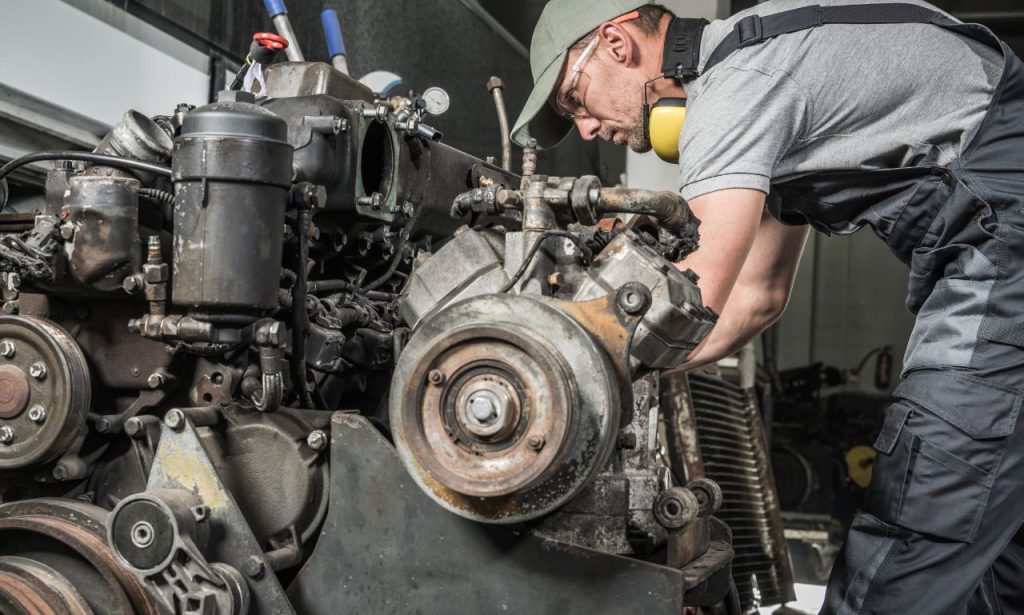
With all these options, how do you choose the proper coolant for your diesel engine? Here are some key factors to consider:
- Check your owner’s manual first – The manufacturer knows what’s best for your specific engine design.
- Consider your climate – Freeze protection is critical in icy areas, making ethylene glycol-based products a good choice.
- Consider maintenance intervals – If you prefer extended maintenance intervals, an ELC might be worth the higher initial cost.
- Look at the metallurgy of your engine – Newer engines with more aluminum components often benefit from OAT or HOAT coolants.
- Consider compatibility with existing coolant – If you’re not doing a complete flush, ensure any new coolant is compatible with what’s already in your system.
For most modern diesel engines, an extended-life coolant like Shell Rotella ELC offers the best balance of protection, longevity, and value. These products provide excellent corrosion and cavitation protection while requiring minimal maintenance.
Conclusion
Choosing the best coolant for your diesel engine isn’t just about preventing freezing – it’s about providing comprehensive protection for your engine’s cooling system and components.
While the initial cost of premium coolants like ELCs might be higher, they typically offer better protection, longer service intervals, and reduced maintenance costs over time. These benefits make them the best overall choice for most diesel applications.
Remember that the “best” coolant meets your manufacturer’s specifications and suits your specific operating conditions. Consult your owner’s manual or speak with a reputable diesel mechanic when in doubt.
Proper coolant selection and maintenance might not be the most exciting aspect of diesel engine ownership. Still, it’s one of the most critical factors in ensuring long, reliable service from your engine.
ALSO READ: Signs of Car Radiator Failure
FAQs
Diesel engine coolants come in various colors, including green (traditional IAT), orange or red (OAT), yellow (HOAT), and pink or purple (nitrite-free formulations). However, color alone isn’t a reliable indicator of coolant type or compatibility.
Change intervals vary by coolant type: traditional IAT coolants typically need changing every 30,000 miles or 2 years, while Extended Life Coolants can last 150,000-600,000 miles or 5-8 years. Always follow your engine manufacturer’s recommendations.
Generally, no. Mixing incompatible coolants can reduce corrosion protection and cause additives to precipitate out of the solution. If you’re unsure about compatibility, performing a complete flush before switching coolant types is best.
Yes, distilled water is strongly recommended. Tap water contains minerals that can form deposits in your cooling system and reduce the effectiveness of corrosion inhibitors in the coolant.
Many diesel engines, especially heavy-duty ones, benefit from Supplemental Coolant Additives (SCAs) when using conventional coolants. Extended Life Coolants typically don’t require SCAs. Check your manufacturer’s specifications.

